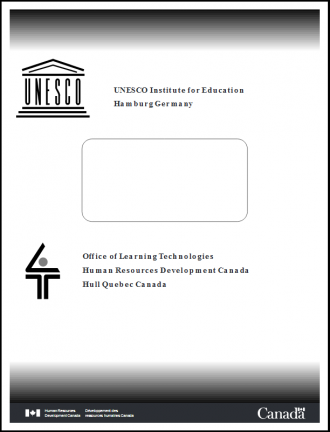

‘Impact of Distance Education on Adult Learning’ project (IDEAL)
Distance education is becoming an increasingly widespread phenomenon. As many adults are unable to participate in on-campus education, distance education offers flexible learning paths that greatly enhance accessibility to higher education. Exploring ways of using distance education to increase the participation of adult learners in higher education is an important objective of European education policies. Against this background, the UNESCO Institute for Lifelong Learning (UIL), together with the International Council for Open and Distance Education (ICDE) and StudyPortals (SP), set out to examine the potential of the distance education programmes provided by higher education institutions in Europe. The research project, which was entitled ‘Impact of Distance Education on Adult Learning’ (IDEAL), was funded by the European Commission’s Lifelong Learning Programme. The task force for the project consisted of experts on adult and distance education from the European Association of Distance Teaching Universities (EADTU), the European Association for the Education of Adults (EAEA), the European Distance and E-Learning Network (EDEN), the European Foundation for Quality in E-Learning (EFQUEL) and the European Society for Research on the Education of Adults (ESREA). The findings of the research, which was conducted between October 2013 and November 2015, are gathered in three online publications and a final research report. The final research report, entitled Closing the Gap: Opportunities for Distance Education to Benefit Adult Learners in Higher Education, is now available.
Publications
Three online publications on the distance education offer of European higher education institutions and the social profiles of adult learners enrolled in distance education.
Motivating and inhibiting factors affecting the participation of adult learners in distance education
Approximately 3 million students are currently enrolled in distance higher education. To increase the participation of adult learners in higher education, it is important to identify the factors that encourage adult learners to avail themselves of distance education. The most important factors motivating students to participate in distance education is that distance education is easier to combine with a job (30%), it allows students to study at their own pace (21%), and it allows them to study from home (19%).
The main factors preventing students from participating in distance education are the need for funding (54%), a shortage of time (18%), and a lack of recognition of prior qualifications (15%).
Key findings
The key findings of the final volume show that increasing attainment levels, improving career prospects and self-fulfilment were the major motivations for adult learners who engaged in distance education. The study recommends that policymakers and distance education providers at higher education institutions reduce regulative barriers, including formal entry requirements, and that they develop standard procedures on the recognition of prior learning. Furthermore, eligibility criteria must be made more visible and more information on credits and the transferability of qualifications should be provided. Higher education institutions should also improve funding models and provide information on options for financial support in order to diversify funding opportunities. As regards the educational offer, higher education institutions should aim to achieve an adequate balance in programmes as well as short-term and long-term courses. Institutions are advised to improve their communication strategies and to use new media to promote further access possibilities. Finally, higher education institutions should facilitate learning for adults by offering more interactive possibilities and practical study guides.
The IDEAL research
Learn more about the definitions used in the IDEAL surveys and reports and the IDEAL research methodology:
- The IDEAL Glossary gives an explanation of key terms used in the IDEAL study, such as ‘distance education’ and ‘blended learning’.
- The IDEAL Research Methodology explains how the IDEAL project addresses its research question: ‘How can and do higher education institutions contribute to adult learning by means of distance education?’
- The IDEAL Distance Education Concept examines the development of the concept of distance education.
IDEAL papers
Abstracts and conference papers on the IDEAL project:
- ESREA abstract submitted and accepted for the Second Conference of the ESREA Network on Policy Studies in Adult Education (‘Interrogating Sustainability in Adult Learning Policy: European and Global Perspectives’, 18 to 20 June 2014, Aalborg University, Denmark)
- EDEN conference paper submitted and accepted for the EDEN 2015 Annual Conference on Expanding Learning Scenarios (‘Distance Education in European Higher Education Institutions: Analysing Mechanisms for Increasing Participation of Adult Learners’, 9 to 12 June 2015, Barcelona, Spain)
Webinar
Webinar: Adults in distance education









